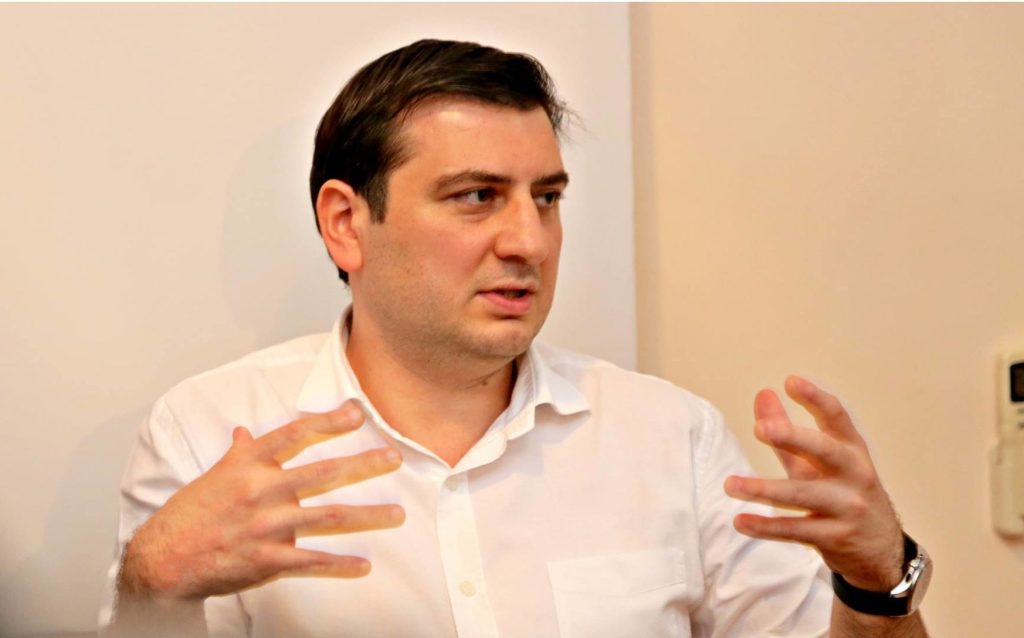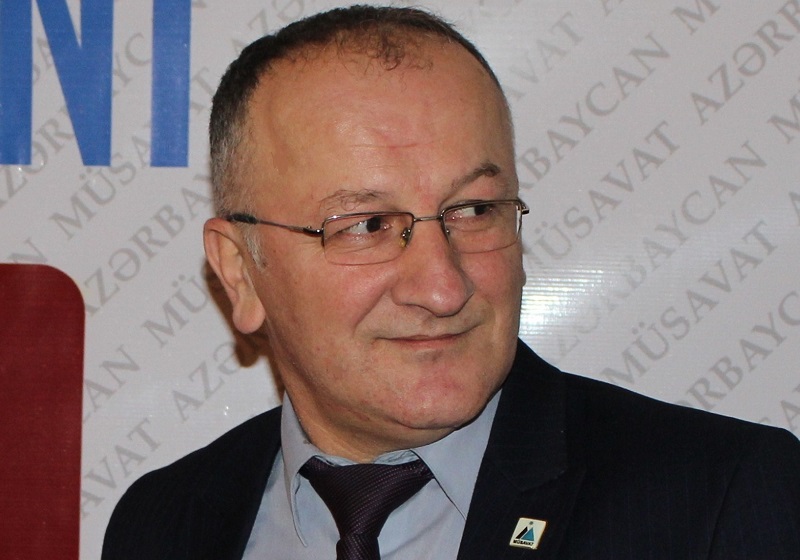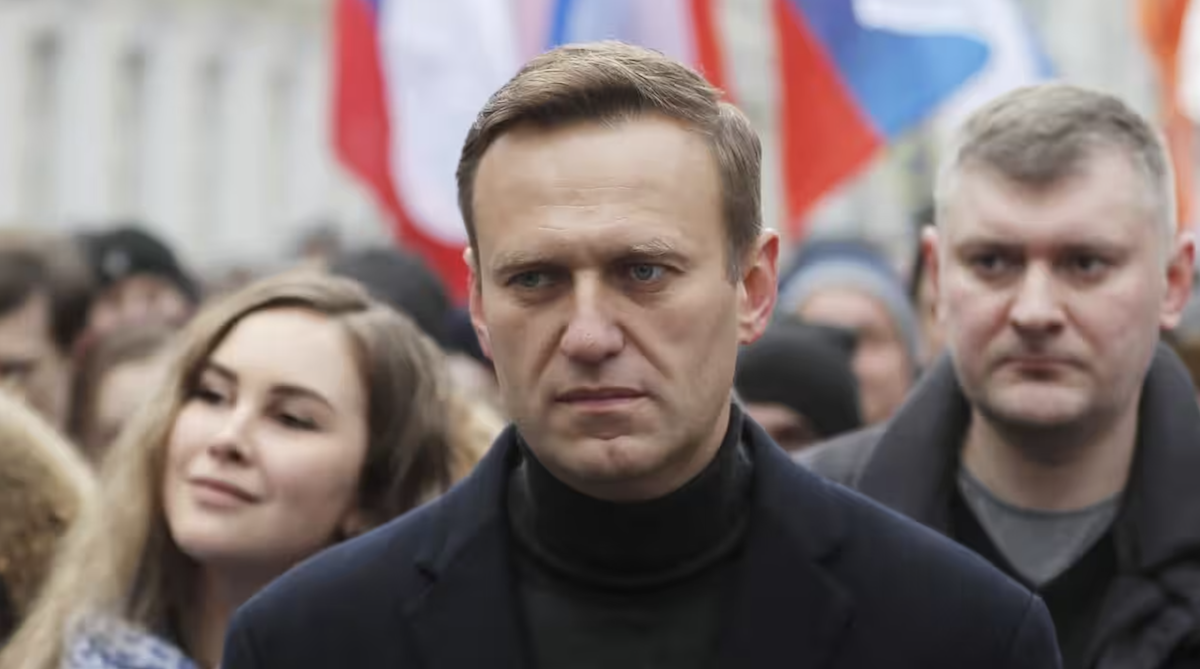Can Navalny's death affect Azerbaijan? Comments from Baku
Navalny and political prisoners in Azerbaijan
The death of Russian opposition activist Alexei Navalny in prison is discussed with particular concern in the neighboring countries with political prisoners in jail. Four days after Navalny’s death, on February 20, Belarusian public and political activist and journalist Igor Lednik died in prison, which only adds to the concern. In April 2022, Lednik, 64, was accused of “slandering Lukashenko” and sentenced to 3 years in prison.
Georgia‘s opposition has expressed concern about the fate of the country’s former president, Mikheil Saakashvili, who is currently imprisoned and his health condition leaves much to be desired.
There are also people in Azerbaijani prisons who are recognized as “political prisoners” by local and international human rights organizations. And also some of them have health problems.
This is why Navalny’s death in prison in Russia is seen by some in Azerbaijani society as the possible beginning of a frightening trend. There are also those who believe that Azerbaijan is too small a country to challenge the world, unlike Russia.
JAMnews asked Azerbaijani opposition figures Mustafa Hajibeyli, a board member of the Musavat party, and Azer Gasimli, founder of the Institute of Political Governance, for their views on the matter.
“Killing opponents is not a new trend for authoritarian governments”

Opposition politician Azer Gasimli reminds that what happened to Navalny is not a new trend for authoritarian regimes, but he also notes that these regimes have recently become tougher.
“This is not the first time in Russia that the government has eliminated its opponents. Now Navalny has been killed in prison, and before that Boris Nemtsov was shot almost outside the Kremlin.
Opponents have been killed both in Belarus and Azerbaijan. In that sense, this is not a new trend. But on the other hand, authoritarian regimes have been behaving much more harshly lately. When they feel themselves in a desperate situation, they resort to more brutal methods. This is exactly what happened in Russia.
As for Azerbaijan, it is possible that there will be a tougher authoritarian regime and the authorities will follow the same line with the support of Russia. This is not excluded. Because, in fact, the regimes of Aliyev and Putin are more or less the same. They are both elites of the former Soviet system, and they think in roughly the same way. In other words, if the Aliyev regime reaches a deadlock, it may go for it to preserve its power,” Azer Gasimli says.

Musavatist Mustafa Hajibeyli believes that the Azerbaijani government will refrain from continuing the same trend.
“First of all, it is incorrect to compare Russia and Azerbaijan from the point of view that Russia is a huge and much stronger country. Putin can find the strength to challenge the world. But small countries like Azerbaijan do not have the ability to confront the whole world. From this point of view, I am against pessimistic forecasts,” Hajibeyli says.
“We should be worried about Tofig Yagublu, Gubad Ibadoglu…”
Although Hajibeyli tries to stay away from pessimistic forecasts, he believes that the fate of some political prisoners is a cause for concern.
Although Hajibeyli tries to stay away from pessimistic forecasts, he believes that the fate of some political prisoners is a cause for concern.
“First of all, there is concern about the journalists who are now in prison. The authorities treat them very harshly. One can also see a particularly harsh attitude towards Tofig Yagublu. He has been in prison many times. But it seems that the anger of the authorities against him has not subsided, and he was arrested again. In addition, he was subjected to physical torture.
The health condition of ADR Party Chairman Gubad Ibadoglu, who is deprived of medical treatment, is also a source of concern.
In addition, one of the points of concern is the mistreatment of believers who are being arrested en masse.
In fact, I do not want to limit the problem by naming specific names. Because if this experience of Russia is repeated in Azerbaijan, there will be a real danger for all political prisoners,” Hajibeyli said.
Gasimli believes that although there are many political prisoners in Azerbaijani prisons now, he does not believe that there is even one among them who will suffer Navalny’s fate:
“We have many political prisoners, their number exceeds 250 people. Among them are political activists, the party chairman and others. Their lives are also at risk. But it is unlikely that any of them will repeat Navalny’s fate,” the politician says.
“The only solution to the problem of political prisoners is to change the political system”
Azer Gasimli believes that there is only one solution to the problem of political prisoners in the country, which is aggravating every day:
Azer Gasimli believes that there is only one solution to the problem of political prisoners in the country, which is aggravating every day:
“A political system that does not produce political prisoners must be formed in Azerbaijan. Let’s assume that Ilham Aliyev will sign a new decree on pardon and thus release all political prisoners. But this does not mean that there will be no more political prisoners in the country. Two hundred political prisoners may be released, and two thousand people may be arrested four months later. Because the system itself has not changed. All the old Soviet elite must go,” he emphasizes.
Mustafa Hajibeyli agrees with Azer Gasimli. He too says that the current problem of political prisoners in Azerbaijan will not be solved unless the system changes.
“From time to time we, as a society, have sought the release of individual political prisoners. For example, when a criminal case was opened against Mehman Huseynov in prison for the second time, representatives of all sectors of society stood up for him, mass actions were organized in the center of Baku, as a result of which Mehman Huseynov and 50 other political prisoners were released together with him. But the problem was not solved. On the contrary, the situation worsened. Because in authoritarian regimes the problem of political prisoners is obvious and inevitable”.



















